Books

07-Jan-2026
Natural resource management is crucial to sustaining ecosystems and supporting communities as they rely on these resources for their livelihoods. ...
Singh Shyamli
Source: Books

07-Jan-2026
This chapter explores various initiatives currently undertaken by the Government of India to promote and achieve a people-focused governance model....
Jain Neetu
Source: Books
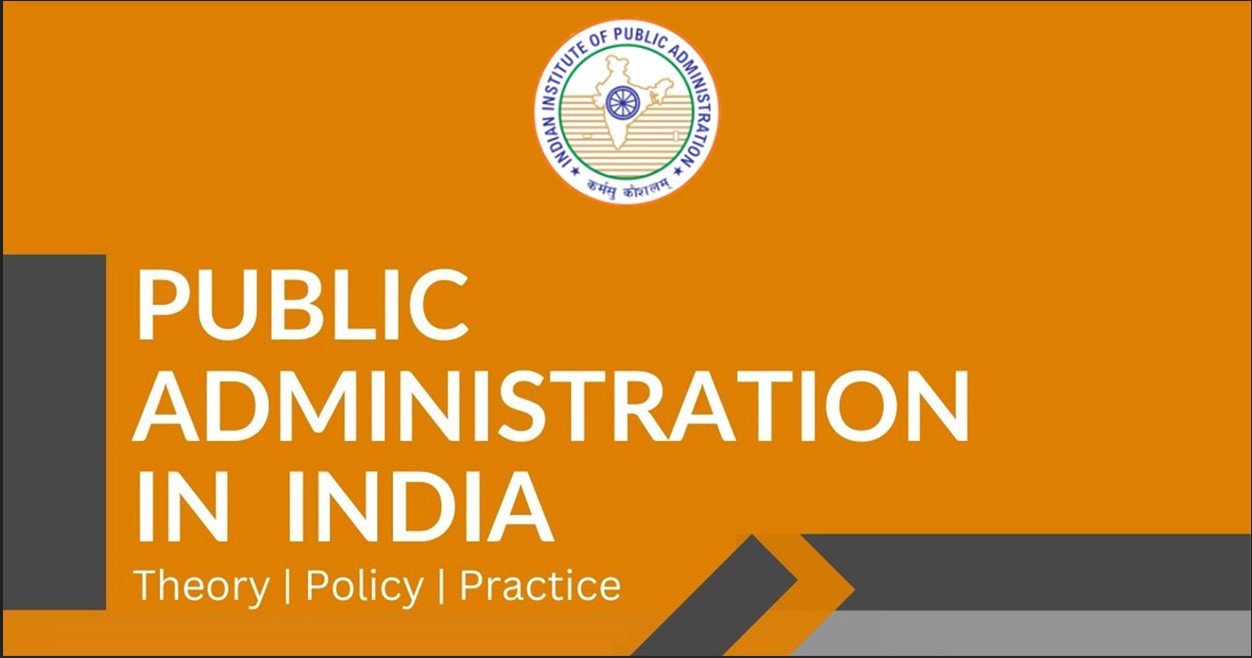
31-Dec-2025
The public sector, also known as the State Sector or Government Sector, was conceived as an economic development instrument for ensuring law and order...
Dhameja Nand
Source: Books

31-Dec-2025
The Union Government of India is the central authority responsible for national governance, structured into three main organs: the executive, Parliame...
Wasnik Jitendra G.
Source: Books

31-Dec-2025
India has evolved from a centralised, control-oriented planning model to a decentralised, collaborative, and data-driven policy-making framework, pavi...
Yadav Sushma
Source: Books

31-Dec-2025
The structure, functions, and challenges of state government and administration in India are crucial for comprehending the operational dynamics of the...
Rathore Siddharth
Source: Books

31-Dec-2025
In India, district administration represents the critical link between state-level policy formulation and grassroots implementation. This chapter exam...
Siwach Rajkumar
Source: Books

31-Dec-2025
The rapid pace and interdependence of global, political, social, and economic developments have necessitated a critical need for improved efficiency, ...
Pathania Mamta
Source: Books

31-Dec-2025
The cornerstone of modern democratic governance is financial management, which determines not only the allocative priorities of the state but also the...
Ranjan Manish
Source: Books

31-Dec-2025
Administrative reforms are a continuous process to improve the functioning of administrative institutions. The reforms play an important role in strea...
Misra Suresh
Source: Books

31-Dec-2025
This document covers a brief and pointed framework of the detailed process of urban local/municipal governance in India, with special reference to the...
Pandey Kamla Kant
Source: Books

31-Dec-2025
This chapter presents an overview of specific significant issues in public administration: Values in Public Service, Regulatory Commissions in India, ...
Reddy C. Sheela
Source: Books

31-Dec-2025
In an era where administrative agility defines the efficacy of democratic governance, this chapter, “Techniques of Administrative Improvement,” of...
Ranjan Manish
Source: Books

30-Dec-2025
The Ministry of Finance plays a vital role in shaping both monetary and fiscal policies in India. This Chapter is aimed at providing an overview of th...
Alok VN
Source: Books

30-Dec-2025
The evolution of the Indian administration reflects a historical continuum shaped by civilizational values and transformative changes. Each phase of t...
Kundu Rajesh Kumar
Source: Books

30-Dec-2025
The public sector, also known as the State Sector or Government Sector, was conceived as an economic development instrument for ensuring law and order...
Dhameja Nand
Source: Books

23-Dec-2025
In a fast-paced world, administrative improvement is a strategic necessity. O&M, work study, and management aid tools, such as network analysis, form ...
Vishandass Ashok
Source: Books
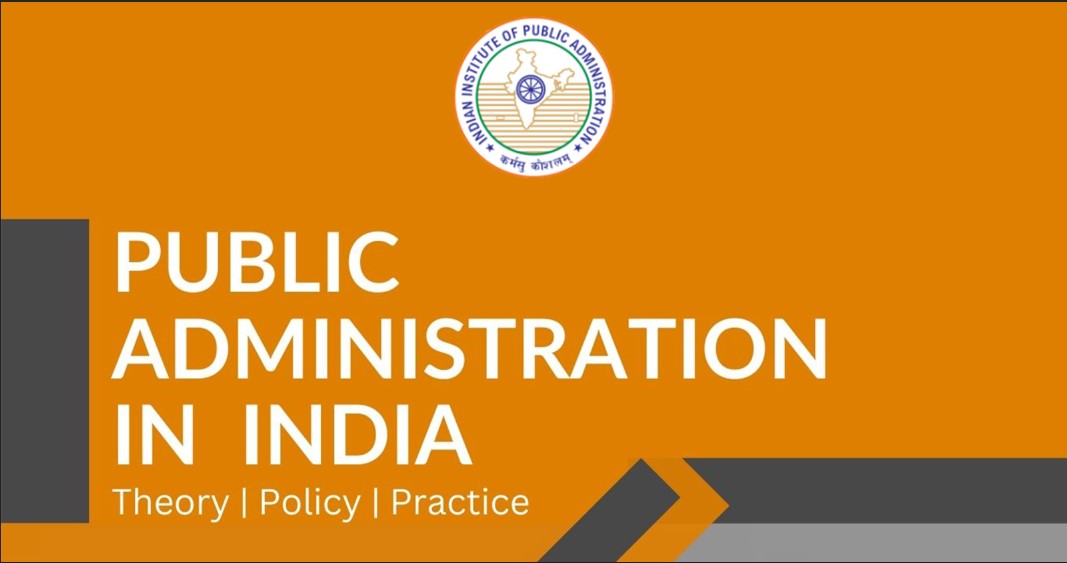
25-Nov-2025
The cornerstone of modern governance is public administration. It refers to the organisation, management, and implementation of government policies an...
Pathania Mamta
Source: Books

25-Nov-2025
The dynamic interaction between the recognition of human complexity in organizations and the pursuit of structural efficiency has shaped the evolution...
Inampudi Sandeep
Source: Books

25-Nov-2025
Administrative Behaviour is a fundamental area of public administration that focuses on comprehending how people behave in groups and within organisat...
Inampudi Sandeep
Source: Books

25-Nov-2025
An organisation is a group of two or more people working to achieve a common objective. The objectives of the organisation can be achieved through dif...
Sharma Meenu
Source: Books

25-Nov-2025
The foundational principles of democratic governance are accountability and control, which ensure that public administration remains transparent, resp...
Wasnik Jitendra G.
Source: Books

25-Nov-2025
The administrative process has become a necessary evil in all progressive societies, especially in welfare states where the government prepares and ov...
Chadah Sapna
Source: Books

25-Nov-2025
Comparative Public Administration focuses on comparing administrative structures, procedures, policy-making organs, the role of bureaucracy in differe...
Sharma Meenu
Source: Books

25-Nov-2025
India is at a crucial juncture in its quest for inclusive development, which will bring prosperity across the entire spectrum. Large amounts of public...
Tiwary Nupur
Source: Books

25-Nov-2025
In the volatile, uncertain, complex, and ambiguous (VUCA) world, public servants’ expectations are growing daily, ranging from e-governance and citi...
Jain Neetu
Source: Books

25-Nov-2025
Public policy is a complex process that consists of a series of decisions that are made by stakeholders and the public. The objective of this Chapter ...
Chowdhry Sachin
Source: Books

11-Nov-2025
Visionary Leadership in building Developed India: Need for Paradigm Shift in Approach to Development
After independence in 1947, India adopted the approach of planned development through Five-Year Plans since 1951. First and Second Plans achieved grea...
Jain Sudhir K.
Source: Books

11-Nov-2025
Corruption poses a considerable impediment to India's progress, hindering its potential for advancement and affluence. This paper highlights the role ...
Jain Neetu, Chadha Himanshi
Source: Books

11-Nov-2025
This study aims to propose systematic, measurable, and actionable frameworks for ensuring ethical decision-making within organizational governance str...
Aggrawal Nitin, Pandey Atul
Source: Books

11-Nov-2025
This paper explores the pivotal role of women in Panchayati Raj governance and rural development in Karnataka, a state known for its socio-cultural di...
Natranjan Satish
Source: Books

11-Nov-2025
The integration of women into the Indian Defence Forces marks a significant stride toward gender inclusivity and operational efficiency. This paper ex...
Dangwal Pranaya
Source: Books

11-Nov-2025
Viksit Bharat seeks to convert India into a developed country by 2047, focusing on economic prosperity, social welfare, and sustainable environmental ...
Narnaware Prashant
Source: Books

11-Nov-2025
Economic empowerment through the creation of income-generation opportunities and livelihood enhancement activities is essential to bring rural women o...
Singh Avantika
Source: Books

11-Nov-2025
Evidence-Based Decision-Making for Viksit Bharat: Conceptualizing a District-Level Data-Exchange DPI
Spurred by the national vision of Viksit Bharat @2047, the present study attempts to achieve the goal of presenting a pathway for evidence-based decis...
Malhotra Charru, Manoharan Aroon P
Source: Books

11-Nov-2025
This study critically examines the Jhar-Jal Portal, an ambitious state-led digital governance initiative deployed in Jharkhand, India, as an empirical...
Ranjan Manish
Source: Books

11-Nov-2025
The integration of Artificial Intelligence (AI) in the District Judiciary has the potential to revolutionize the legal system by increasing efficiency...
Ramesh Arulmozhiselvi
Source: Books

11-Nov-2025
General Purpose Technologies (GPTs), such as Artificial Intelligence (AI), Blockchain, Cloud Computing, and the Internet of Things (IoT), are transfor...
Chhabra Naresh
Source: Books

11-Nov-2025
The article delves into the complexities of insider trading, particularly in the context of circumstantial evidence and evolving technological challen...
Dutta Biswadeep, Miglan Deepak, Sherawat Anjali
Source: Books

11-Nov-2025
The purpose of this study is to assess the Pradhan Mantri Jan Dhan Yojna (PMJDY) program implemented in India for inclusive growth for the people, for...
Raj Ankita, Singh Kanhaiya
Source: Books

11-Nov-2025
In India, digital transformation has become a key component of economic and social advancement, which was launched in 2015, profoundly changing how in...
Pandey Surabhi, Raghib Syed Mohammad
Source: Books

11-Nov-2025
The study examines today's worldwide issues and explains why we must build systems that both survive and endure perpetually. Our proposal establishes ...
Bhattacharya Sumanta
Source: Books

11-Nov-2025
The objective of the study is to analyse the socio-economic impact of the two sewage treatment plants using Cost-Benefit Analysis to compare the costs...
Sharma Pooja
Source: Books

11-Nov-2025
Ecological issues give birth to environmental discourses on human-nature interaction worldwide, which ultimately reinforce the need for environmental ...
Sisodia Saumya, Rai Shivani
Source: Books

11-Nov-2025
The River Saryu revered as sacred in Hindu mythology and deeply associated with the spiritual and cultural heritage of Ayodhya, faces growing environm...
Singh Shyamli, Sharma Kanishka
Source: Books

11-Nov-2025
It is well well-known fact that Fat self-ignites at 760 Degree celsius. Using this fact, a group of environmentalists has tried an experiment of build...
Gulati Sunil K., Jaimal Ramji
Source: Books

11-Nov-2025
India has the mammoth task of achieving food security with a projected 1.7 billion in 2047. The current paper addresses the role of sustainable agricu...
Raza Asmi
Source: Books

11-Nov-2025
E-transportation is emerging as a game changer in the travel and tourism industry, offering sustainable mobility solutions that reduce carbon emission...
Maurya Manisha, Mishra Vaibhav, Misra Shikha
Source: Books

11-Nov-2025
This article presents a case study on the development of railroads in India during British rule (1845–1924), focusing on the unique relationship bet...
Gupta Pradeep
Source: Books

11-Nov-2025
The Freedom Struggle in India witnessed the largest community-led mass movement in modern India, which resulted in emancipation from the British Raj. ...
Pachauri S.K.
Source: Books

11-Nov-2025
When citizens actively express their views and participate in governance, it drives national progress by aligning government actions with public needs...
Kumar Rakesh
Source: Books

11-Nov-2025
Education is a key driver of national development, enabling individual empowerment and societal transformation. Despite progress toward universal educ...
Verma Sahil, Sinha Rohit, Goel Manisha
Source: Books

11-Nov-2025
As India approaches its 2047 centennial of independence, the idea of "Viksit Bharat" (Developed India) is gaining prominence in national discussions. ...
Sanyukta, Aggarwal Shilpee, Chaudhary Bharti
Source: Books

07-Nov-2025
This paper examines the evolving role of leadership in Public-Private Partnerships (PPPs), emphasising the need for adaptive and integrative leadershi...
Jacob Biju
Source: Books

07-Nov-2025
This paper explores the critical role of leadership in achieving inclusive governance as part of India’s vision for Viksit Bharat 2047, a developed ...
Dixit alaram, Dixit Amrapali
Source: Books

04-Nov-2025
The study of ancient India's economic history has often been dominated by two contrasting perspectives. On one hand, there is the image of a largely s...
Mitra Roma
Source: Books

04-Nov-2025
There is a rich body of scholarly and secondary literature on public institutions and markets in ancient India, particularly as documented through reg...
Mitra Roma
Source: Books

04-Nov-2025
This concluding chapter is not merely recount the findings of the study, but it seeks to synthesizing the key themes to articulate a more holistic und...
Mitra Roma
Source: Books

03-Nov-2025
The study of public administration in ancient India is a journey through a web of administrative institutions, cultural values, ethical precepts, and ...
Mitra Roma
Source: Books

03-Nov-2025
Public policy in ancient India was not only crafted by emperors and royal councils but also shaped by regional practices, local texts, and community-b...
Mitra Roma
Source: Books

03-Nov-2025
Ancient Indian regional literature describes a wide range of public institutions that combined decentralized participatory governance with centralized...
Roma Mitra
Source: Books

03-Nov-2025
The ancient Indian society was structured by varna, viz. Brahmins (priests), Kshatriyas (warriors), Vaishyas (merchants), and Shudras (laborers); with...
Mitra Roma
Source: Books

03-Nov-2025
Public institutions in ancient India refer to formal structures and assemblies that governed civic life, regulated societal relationships, enforced la...
Roma Mitra
Source: Books

10-Oct-2025
This sentiment lies at the heart of ease of living. The concept of ease of living has emerged as a vital yardstick to judge whether growth translates ...
Shrivastava Riddhi
Source: Books
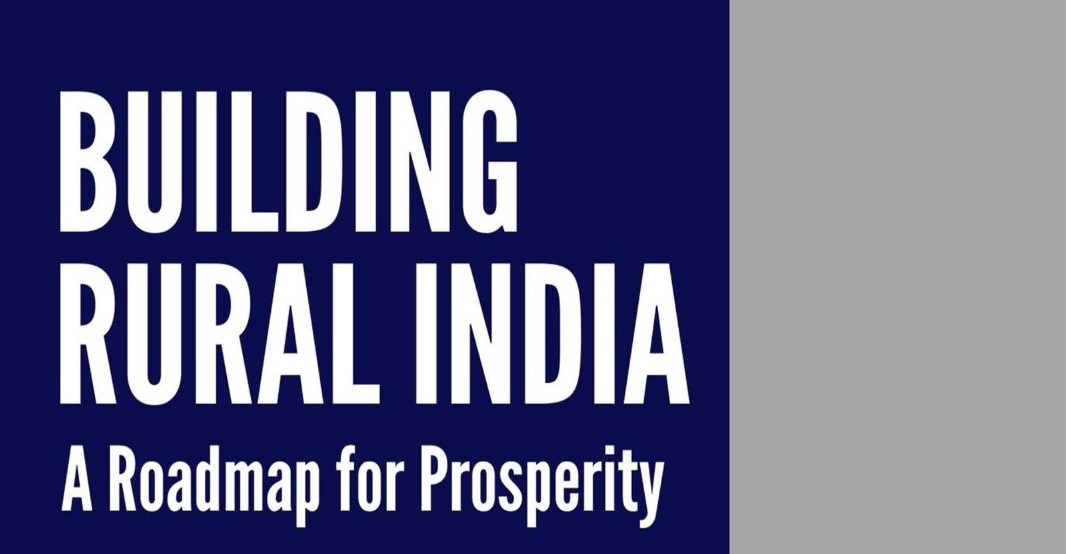
07-Oct-2025
Panchayati Raj in India is as old as Indian civilisation. Its history goes back to the Vedic times, and according to some, even pre-Vedic times. To un...
Misra Suresh, Singh Amit
Source: Books

07-Oct-2025
The paper provides a detailed insight into the vast MFP (Minor Forest Produce) economy of India, a sector crucial to the livelihoods of about 100 mill...
Source: Books

07-Oct-2025
This report traces the journey of Panchayat computerisation in India popularly known as e‑Panchayat from the Round Table Conferences of 2004 through...
Misra Deepak Chandra
Source: Books

06-Oct-2025
This chapter outlines strategies to bridge the India–Bharat divide through inclusive, innovative financing of rural enterprises. It covers difficult...
Mohapatra Gadadhara
Source: Books

06-Oct-2025
This chapter examines the integration of key schemes/programs/approaches such as Deendayal Antyodaya Yojana-National Rural Livelihoods Mission (DAY-NR...
Malhotra Charru
Source: Books

03-Oct-2025
Skilling is the motherboard of development in the 21st century. The motherboard needs to be calibrated well to improve quantity and quality in jobs. N...
Bihari Saket
Source: Books

03-Oct-2025
A revolutionary strategy for creating inclusive and fact-based rural policy frameworks is Data for Development (D4D). Policymakers are now better able...
Pandey Surabhi
Source: Books

29-Sep-2025
Last one decade has witnessed unprecedented coverage of micro enterprises and workers from rural areas under specific schemes and facilitation....
Pandey Kamla Kant, Chowdhry Sachin
Source: Books

29-Sep-2025
The transformation of rural livelihoods is not just an economic imperative but a socio-political one. A rural economy that provides dignified, diversi...
Vishandass Ashok
Source: Books

29-Sep-2025
This chapter analyzes the different aspects of women entrepreneurs in rural India. The chapter covers many key issues, including the sources of fundin...
Jain Neetu
Source: Books

29-Sep-2025
Rapid rural transformation is crucial for achieving equitable and sustainable development, particularly in countries like India, where rural areas com...
Pawan Kumar Taneja, Kusum Lata
Source: Books

26-Sep-2025
Rural India accommodating, sixty five percent of national population living in 6.65 lakh villages among 2.68 lakh Gram Panchayats and rural local bodi...
Tripathi Surendra Nath, Pandey Kamla Kant
Source: Books

26-Sep-2025
This paper traces the typology of historical reforms at grass root level in the state and specific reforms initiated by the State Board of Revenue. Th...
Srinivas V.
Source: Books
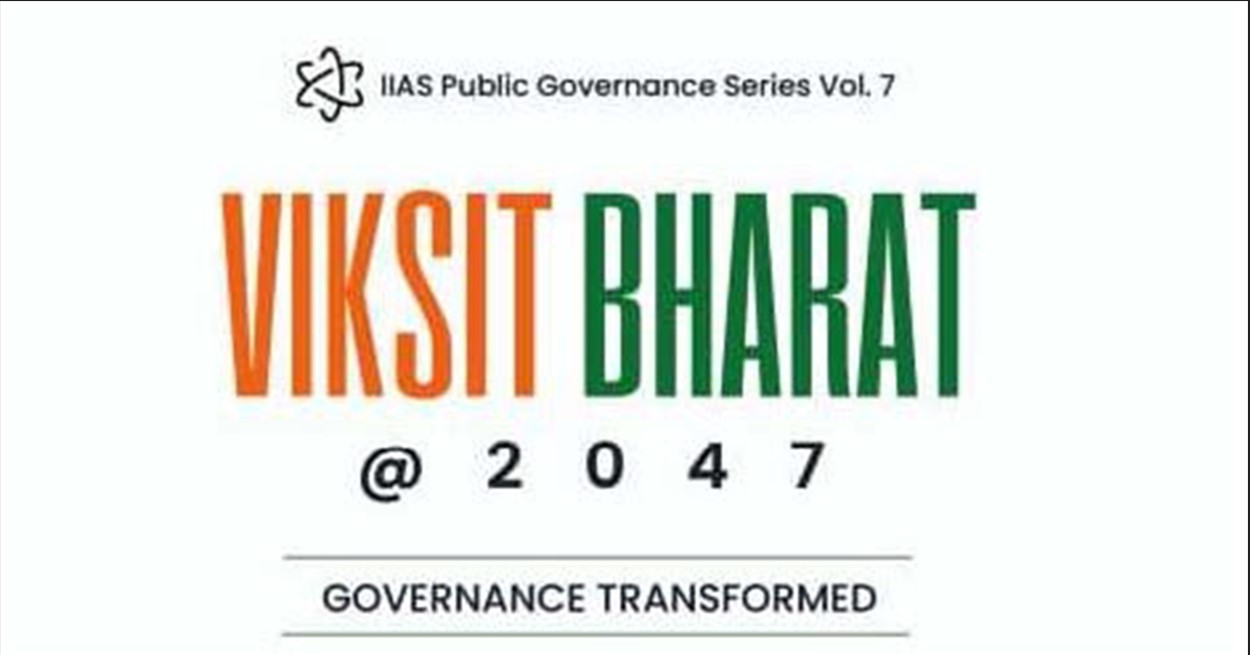
25-Sep-2025
Governance has often been defined as the manner in which the authority, control, and power of an elected government are exercised in mobilising a soci...
C.K. MATHEW, SURENDRA NATH TRIPATHI, C. SHEELA REDDY, A. P. SINGH
Source: Books
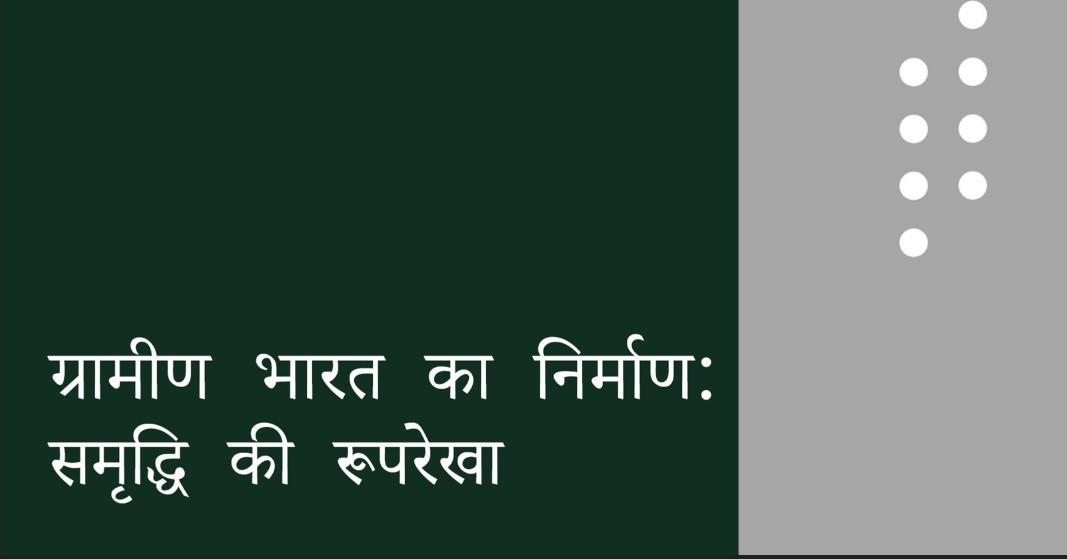
04-Sep-2025
ग्रामीण आजीविकाओं का रूपांतरण केवल एक आर्थिक आवश्यकता ह�...
विषंदास अशोक
Source: Books

04-Sep-2025
यह अध्याय ग्रामीण भारत में महिला उद्यमियों के विभिन्न पह...
जैन नीतू
Source: Books

04-Sep-2025
तेज़ ग्रामीण परिवर्तन, न्यायसंगत और सतत विकास प्राप्त कर...
तनेजा पवन कुमार और लता कुसुम
Source: Books

04-Sep-2025
21वीं सदी में कौशल विकास को विकास का मदरबोर्ड माना जाता है�...
बिहारी साकेत
Source: Books

03-Sep-2025
यह शोधपत्र राज्य स्तर पर जमीनी स्तर के ऐतिहासिक सुधारोंक...
श्रीनिवास वी.
Source: Books

03-Sep-2025
पिछले एक दशक में ग्रामीण क्षेत्रों की सूक्ष्म उद्यम इकाइ...
पांडेय के.के. और चौधरी सचिन
Source: Books
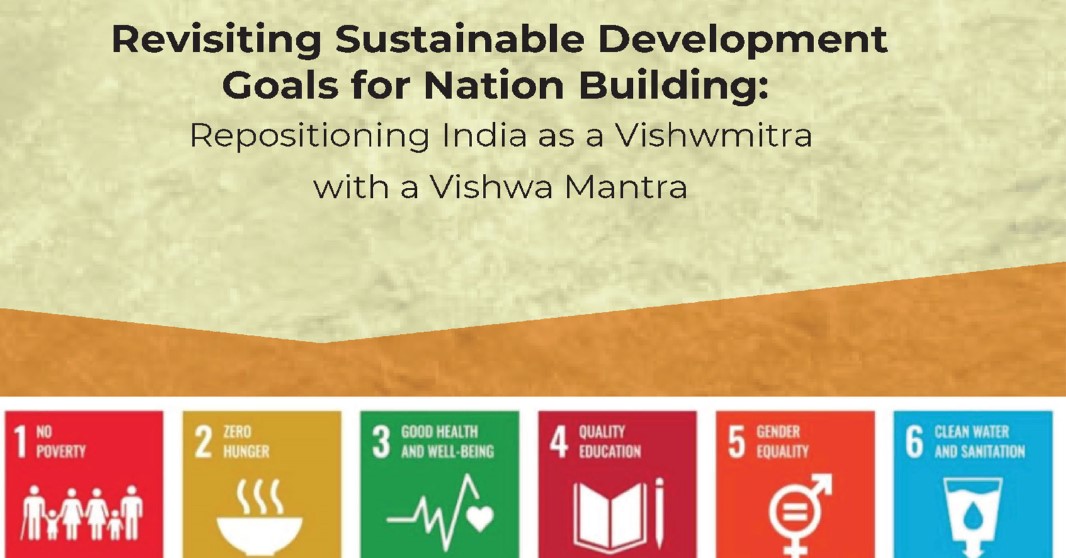
07-Aug-2025
This paper offers an integrated digital drone-based services solution for cities & towns, controlled through an integrated smart control room and/...
Huria Bharat
Source: Books

07-Aug-2025
Technological advancements in the field of Artificial intelligence (AI) are being adopted by society at large since it has the potential to change the...
Chhabra Naresh
Source: Books

07-Aug-2025
This study analyses the current contribution of the Public Sector Enterprises (PSEs) in building a competent workforce for the nation while identifyin...
Aggrawal Nitin, Jain Neetu
Source: Books

07-Aug-2025
India has surpassed France and the UK to become the fifth largest economy in the world with a nominal Gross Domestic Product (GDP) estimated to be aro...
Mehrotra Rohit
Source: Books

07-Aug-2025
The future of tourism lies in those destinations that conserve a clean environment and reflect natural beauty as the majority of foreign tourists appr...
Jain Sudhir K, Modwel Gauri
Source: Books

07-Aug-2025
The hallmark of any criminal justice system rests on some key robust principles. Access to justice, being a component of justice is one of them. It en...
Chadah Sapna, Kaushal Isha
Source: Books
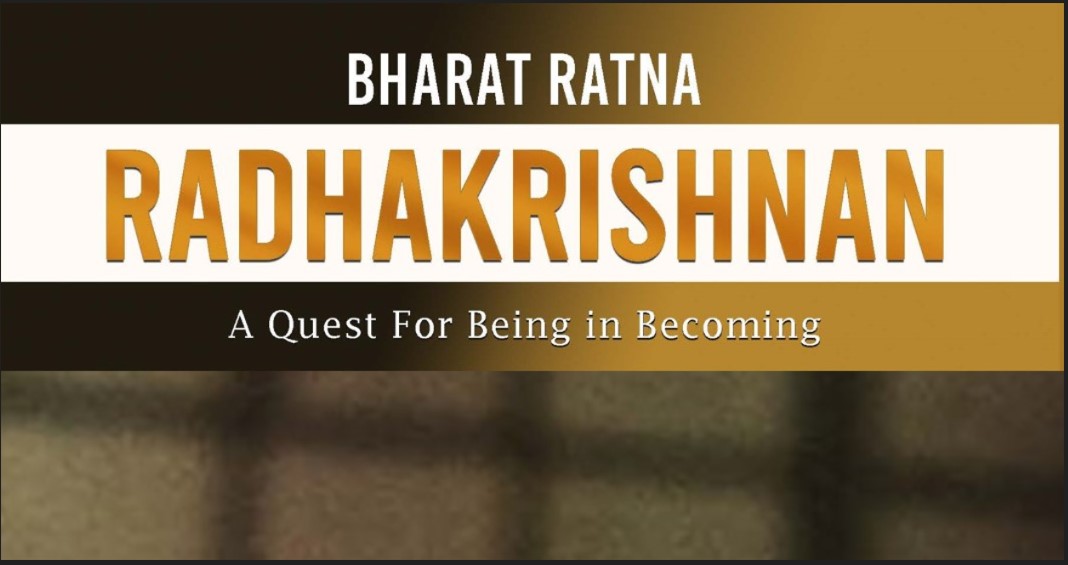
07-Aug-2025
Bharat Ratna Dr. Sarvepalli Radhakrishnan was the first Vice-President (1952-62) and second President (1962-67) of India. ...
Tripathi Surendra Nath, Bihari Saket
Source: Books

07-Aug-2025
S. Radhakrishnan saw India as a land where the spirit in human beings comes to the fore unbridled by fear or hatred, establishing unity with the entir...
Anand Mamta
Source: Books

07-Aug-2025
Every culture has a vision of a philosopher and a statesman presiding over its destiny. The wisdom of the philosopher will guide the statesman to gove...
Chaturvedi Atulindra Nath
Source: Books

07-Aug-2025
Dr Sarvepalli Radhakrishnan (1888-1975) was an extraordinary philosopher, educator and statesman whose ideas and work had evolved in the socio-politic...
Atwal Jyoti
Source: Books

07-Aug-2025
Like a luminous thread woven through Indian thought, dharma, the path of righteousness, ignites the sacred flame of humanity within. By steadfastly wa...
Reddy Kovuuri G, Prakash Uttam
Source: Books

07-Aug-2025
Dr. Sarvepalli Radhakrishnan (1888-1975) was a prominent Indian scholar, philosopher, and statesman who influenced academic circles during the 20th ce...
Shukla Sunil, Shethna Vidhy
Source: Books

07-Aug-2025
This paper attempts to delineate the ethical foundations of Hinduism as perceived in Dr S. Radhakrishnan’s thought, largely dominated by Veda̅nta p...
Sinha Gunjan Pradhan
Source: Books

07-Aug-2025
This paper explores the relevance of Dr. S. Radhakrishnan philosophical teachings. It addresses one of the most pressing issues of our time: climate c...
Kumar Manish
Source: Books

07-Aug-2025
Dr. S Radhakrishnan was a philosopher par excellence. He advocated for Indian social values, religion and wisdom stock. The ‘teacher-taught’, ‘s...
Kumar Nishant
Source: Books

07-Aug-2025
The paper seeks to explore the contributions of Shri S Radhakrishnan as a Philosopher and as India's Stalwart Academician. Dr. S. Radhakrishnan was a ...
Anjaria Arnav Keyur, Chugh Priyanka
Source: Books

07-Aug-2025
Many Saints, Rishis, erudite individuals, educators, and philosophers were born in our wonderful land. These great individuals transmitted the light o...
Mishra KN
Source: Books

07-Aug-2025
Many Saints, Rishis, intelligent people, educators, and philosophers were born in our land. These great individuals illuminated the entire world with ...
Priyadarshani Nibedita
Source: Books

07-Aug-2025
The philosopher, the second President of India and most importantly the great teacher, Dr S Radhakrishnan doesn't need any introduction....
Katoch Nidhi
Source: Books

06-Aug-2025
Education is the essential part of any development as it is a means of social improvement and material wellbeing, especially for the economically and ...
Nazeer Zubair
Source: Books

06-Aug-2025
In this VUCA world, changes are taking place at a very high pace. Development of new technologies has created cut throat competition among organizatio...
Kumar Rakesh
Source: Books

06-Aug-2025
This paper delineates the significance of education for the growth and development of human being. Indeed, educational attainment is associated with m...
Jain Neetu, Shauran Bharti
Source: Books

06-Aug-2025
The concept of inclusion has transcended its status as a social construct and has drawn significant attention from organisational practitioners and sc...
Garg Shalini, Chhikara Renu
Source: Books

06-Aug-2025
The transformation of the lives of rural women towards their betterment is a critical issue in the development process of countries around the world. ...
Jain Ambali, Singh Avantika
Source: Books

06-Aug-2025
This study starts with an Indian benchmark method of the Vedic era that was used to ensure equality and women's contribution to nation-building. Subse...
Aggrawal Nitin
Source: Books

06-Aug-2025
This paper covers the health benefits of cycling and how it has a positive impact on the environment. It examines the Dutch model of the development o...
Kapoor Puneet
Source: Books

06-Aug-2025
Health and happiness are valuable assets of human life. Traditional Indian knowledge system particularly Yogic and Ayurvedic texts, elaborately descri...
Yadav Anil Kishor
Source: Books

06-Aug-2025
With the emerging global crisis of climate change outbreak of COVID-19, it is imperative that how significant it is to maintain the balance between ec...
Sharma Pooja, Choudhary Nitin Kumar
Source: Books

06-Aug-2025
The Ironman triathlon is considered one of the most demanding endurance races globally, encompassing long-distance swimming, cycling, and running....
Jaychandran CJ
Source: Books

06-Aug-2025
The Public Sector Enterprises (PSEs) have contributed significantly in the growth and development journey of India. Over the past few years, survival ...
Chaudhary Vijay Kumar, Singh Kanhaiya
Source: Books
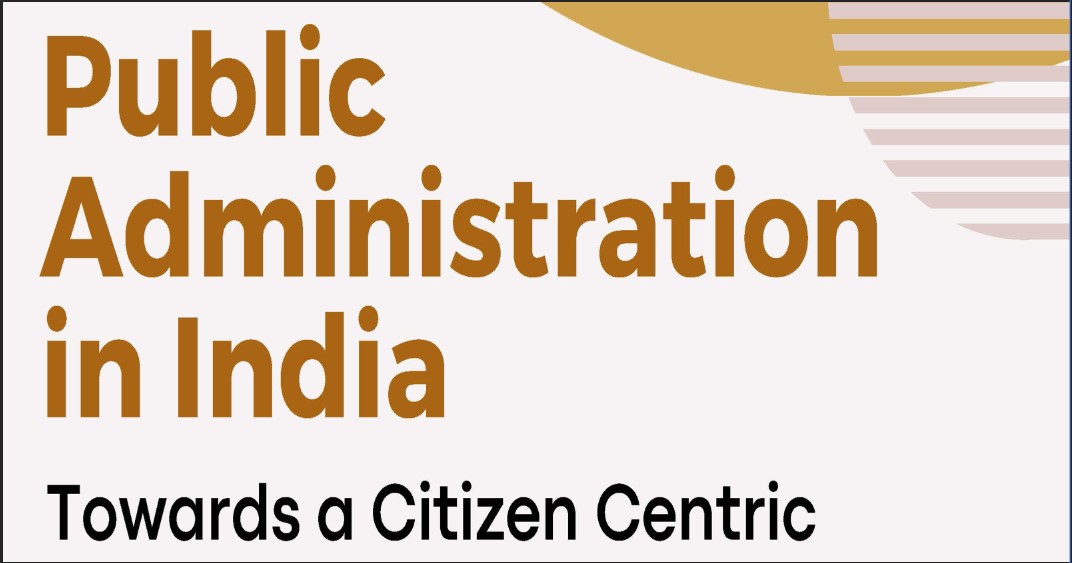
04-Aug-2025
E-commerce and digital technology have transformed the way people spend and save. There is an evident technological growth in the world of finance whi...
Kaur Ashmeet
Source: Books

04-Aug-2025
Healthcare is an essential aspect of any society, and in India, it holds a unique place due to its immense population and diverse healthcare needs....
Maheswari M Uma, AS Arvind
Source: Books

04-Aug-2025
The 21st century has ushered in an era of rapid technological advancement, fundamentally altering how governments interact with their citizens....
Thakkar Maneesh, Kumar Anil
Source: Books

04-Aug-2025
Since the majority of India's population relies on agriculture for their living, the sector dominates the country's economy. Agriculture only ma...
Katekar Vishal, Cheruku Jeevan Kumar
Source: Books

04-Aug-2025
Digital governance, in the context of the digital era, involves the use of information and Communication Technologies (ICTs) to enhance and transform ...
Mahor Jyotsana
Source: Books

04-Aug-2025
The government provides services including healthcare, education, social support, and financial inclusion to the public. However, villagers and citize...
Malhotra Charru
Source: Books

04-Aug-2025
The issue of governance has received serious attention of researchers, policy makers, administrators and the national as well as international communi...
Kundu Rajesh Kumar
Source: Books

04-Aug-2025
Corruption is a complex socio-economic problem which universally affects all societies. The government being a large-scale organisation is also not im...
Aarti, Kohli Avneet Kaur
Source: Books

04-Aug-2025
With his utopian yearning for a paganised unified globe devoid of all the limitations and boundaries that afflict our unreal world, Lennon scarcely co...
Gholap Shubhada
Source: Books

04-Aug-2025
The concept of governance is not new. It is as old as human civilisation. Civilisation is the characteristic of the people. It is one of the things th...
Alok Ashish
Source: Books

04-Aug-2025
The Aspirational District Programme (ADP), launched by Prime Minister Sri Narendra Modi in January 2018, represents a significant policy initiative ai...
Maurya Akhilesh
Source: Books

04-Aug-2025
Gram Sabha represents the fundamental unit of local governance. It acts as the integral component of the Panchayati Raj system, embodying the essence ...
BS Ashalekshmi
Source: Books

04-Aug-2025
Right to health is primarily not just a call for consigning legal status of a human aspiration. It has much more to do with the civilisational prefere...
Dhaka Sunita
Source: Books

04-Aug-2025
India's healthcare system has long been a subject of concern due to its inadequate infrastructure, limited access to quality healthcare, and stark dis...
Goud Poodari Rohith, Ahmad Ansari Mohd Nafees
Source: Books

04-Aug-2025
Governance is an age-old concept and it is all about making decisions and getting things done (UCLG, 2021). It happens at every level like countries, ...
Singh Amit Kumar
Source: Books

04-Aug-2025
The study focused on assessing the two frameworks in context of Decentralisation of Health Services in Jhunjhunu District, Rajasthan viz. perceptions ...
Singh Upendra
Source: Books

04-Aug-2025
The 73rd and 74th constitutional amendments brought an overhaul in public administration by empowering rural and urban local governance. ...
Bhide Prajakta
Source: Books

04-Aug-2025
The paper identifies the STREET project as a sustainable model for enabling responsible tourism principles and practices with local self-governance as...
Zenib Nilofer, Sasi Sivajith
Source: Books

04-Aug-2025
When the nation moves towards higher standards of development there are several parameters that it needs to take care, not forgetting one of the cruci...
Brahmachari Debahuti
Source: Books

04-Aug-2025
The Yamuna is a tributary of the holy Ganges. The main stream of the Yamuna River originates from the Yamunotri Glacier at Bandar Panch (38°59'N, 78�...
Singh Nawal
Source: Books

04-Aug-2025
A long-term abutting weather situation that is particularly related to temperature and precipitation is called climatic change. Land-use changes, fore...
Singh Shyamli, Singh Anugya
Source: Books

04-Aug-2025
In India, the paradigm of Participatory Forest Management (PFM) is proving to be transformative as it attempts to balance the intricate relationships ...
Parvathy Devi, R Mary
Source: Books

04-Aug-2025
The family stands as the key social institution in the social structures. The planning echelon in both income and spending are defined only in its con...
Dhaka Rajvir, Dhaka Sunita
Source: Books

01-Aug-2025
Public administration in the 21st century is undergoing significant transformation, not just in advanced countries but also in various regions of the ...
Misra Suresh, Chadah Sapna, Pathania Mamta
Source: Books

01-Aug-2025
“Today, I would like to make a request to the bureaucracy of India, to every government employee, be it in the State Government or the Central Gover...
Srinivas V
Source: Books

01-Aug-2025
The field of public administration is experiencing a dramatic and rapid change. Locally and globally, some of the most significant trends that will ha...
Misra Suresh, Mahor Jyotsana
Source: Books

01-Aug-2025
A paradigm represents a framework, viewpoint, or collection of concepts that serves as a lens for understanding various subjects. In disciplines like ...
S Ajitha
Source: Books

01-Aug-2025
India, is the world's largest democracy, with a population of 1.48 billion people. Its vast population and the ethnic diversity of its people, languag...
Dalal Rajbir Singh, Monika
Source: Books

01-Aug-2025
From the study of the principles of origin of the state, it is concluded that the state has originated to make human life easier and this function of ...
Ranawat Jorawar Singh
Source: Books

01-Aug-2025
In recent years, the widespread practice of offering freebies, ranging from subsidised goods and services to outright giveaways, has become a prominen...
Sharma Daisy
Source: Books

01-Aug-2025
The theory of separation of powers constitutes a key tenet of democratic governance....
Sonaje Tejas
Source: Books

01-Aug-2025
Good Governance is the key to a Nation’s progress and an important step towards it is the simplification of procedures and processes in the Governme...
Sisodia Saumya, Rai Shivani
Source: Books

01-Aug-2025
With over eight thousand years of experience and intellectual growth (Cameron (1968), Edwards (Gadd, 1971), Hammond (1971), Eisenstadt (1963, 1993), O...
Sharma Minal
Source: Books

01-Aug-2025
The civic engagement is an important hall mark of democracy. Ours has been one of the oldest and richest democratic traditions that have involved peop...
Sharma Abhinav
Source: Books

01-Aug-2025
India is rapidly integrating technology in both governance and in delivering goods and services. All this requires a worker (civil servant) who is not...
Dhanapall RR
Source: Books

01-Aug-2025
Intrinsically, India is a republican country that is organised as a federation with a parliamentary democracy. Similar to the United Kingdom, the Pres...
Chaudhary Diksha
Source: Books

01-Aug-2025
Local governance is the cornerstone of democracy, where communities come together to make decisions that directly affect their daily lives....
Shukla Vivek Kumar
Source: Books

01-Aug-2025
Since centuries backward class women were politically, economically, socially and educationally oppressed. They were deprived of their basic rights an...
Katturwar B R
Source: Books

01-Aug-2025
Participatory planning involves the intensive participation of local communities in analysing their current situation, envisioning a long-term collect...
Kashyap Sham N
Source: Books

01-Aug-2025
Governance is defined as structures and processes of decision-making through which performance and accountability is ensured in the organisations....
David Supriya
Source: Books

01-Aug-2025
Today we are living in an era of the ‘regulatory state’. The expressions ‘regulation’, ‘regulatory governance’ and ‘regulatory institu...
Chadah Sapna
Source: Books

01-Aug-2025
The Reserve Bank of India (RBI), as India's central bank and regulatory authority, plays a pivotal role in shaping public administration and governanc...
Dhingra Harsh
Source: Books

01-Aug-2025
Resumption of hostilities meant “hell on Earth has returned to Gaza. The resumption of hostilities is catastrophic.”...
Jha Indramohan
Source: Books

01-Aug-2025
The origin of ‘Social Equity’ in Public Administration can be legitimately traced to 1968 Minnowbrook Conference that brought together young minds...
Sanil Akanksha
Source: Books

22-Jul-2025
The term Artificial Intelligence (AI) describes how computers, particularly computer systems, may simulate human intelligence processes. AI can do a v...
Tripathi Surendra Nath, Pandey Surabhi & Raghib Syed Mohammad
Source: Books

22-Jul-2025
With its ability to assist public institutions in tackling intricate problems in fields like healthcare, agriculture, public safety, education, financ...
Tripathi Surendra Nath, Pandey Surabhi & Raghib Syed Mohammad
Source: Books

22-Jul-2025
AI has been a disruptive force in many industries, and it is becoming more and more clear that it has the power to completely change government and po...
Tripathi Surendra Nath, Pandey Surabhi & Raghib Syed Mohammad
Source: Books

22-Jul-2025
Automation is the application of technology to carry out operations with the least amount of human interaction....
Tripathi Surendra Nath, Pandey Surabhi & Raghib Syed Mohammad
Source: Books

22-Jul-2025
India is leading the way in embracing the way Artificial Intelligence (AI) is changing infrastructure management and urban settings globally....
Tripathi Surendra Nath, Pandey Surabhi & Raghib Syed Mohammad
Source: Books

22-Jul-2025
The integration of Artificial Intelligence (AI) into public services, commercial businesses, and government has raised ethical concerns concerning top...
Tripathi Surendra Nath, Pandey Surabhi & Raghib Syed Mohammad
Source: Books

22-Jul-2025
Artificial Intelligence (AI) has enormous potential to improve governance, public service delivery, and decision-making in India's public administrati...
Tripathi Surendra Nath, Pandey Surabhi & Raghib Syed Mohammad
Source: Books

22-Jul-2025
Artificial Intelligence (AI) is revolutionising public administration by increasing the effectiveness, transparency, and responsiveness of service del...
Tripathi Surendra Nath, Pandey Surabhi & Raghib Syed Mohammad
Source: Books

22-Jul-2025
Artificial Intelligence (AI) is becoming more and more important in the fields of finance, healthcare, government, and other industries as it continue...
Tripathi Surendra Nath, Pandey Surabhi & Raghib Syed Mohammad
Source: Books

22-Jul-2025
The emergence of Artificial Intelligence (AI) has changed many industries, leading to debates over the appropriate ways to regulate these quickly deve...
Tripathi Surendra Nath, Pandey Surabhi & Raghib Syed Mohammad
Source: Books

22-Jul-2025
Artificial Intelligence (AI) has advanced significantly across a number of industries, including healthcare, finance, education, and entertainment....
Tripathi Surendra Nath, Pandey Surabhi & Raghib Syed Mohammad
Source: Books

22-Jul-2025
Artificial Intelligence (AI) is turning governance on its head, helping governments all over the world to make evidence-based decisions, expedite proc...
Tripathi Surendra Nath, Pandey Surabhi & Raghib Syed Mohammad
Source: Books
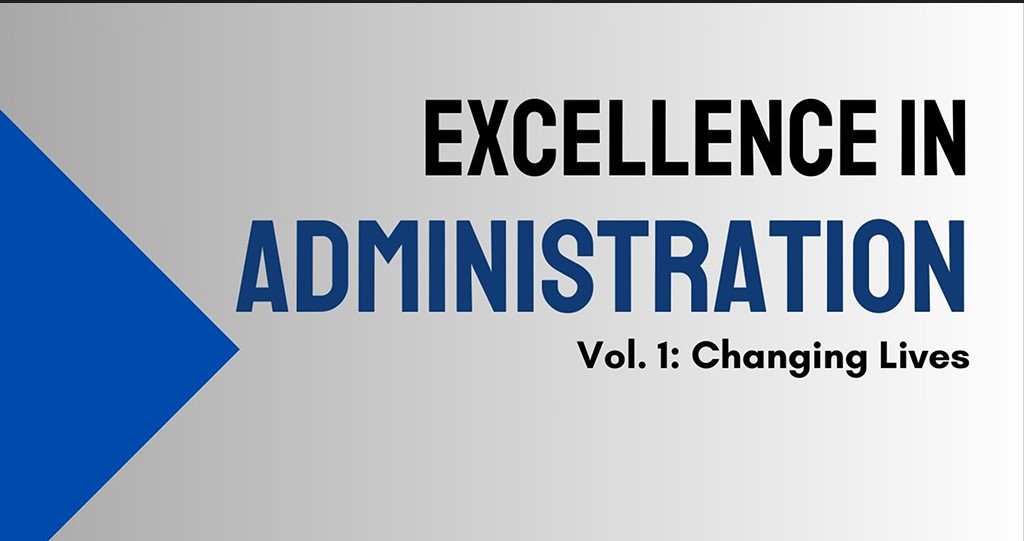
18-Jul-2025
In a nation as diverse and vibrant as India, the potential for sports to transform lives is immense. Sports are not merely a form of entertainment; th...
Goel Shantanu
Source: Books

17-Jul-2025
Since the reform and opening up, China’s leadership training has experienced three stages of development: the initial stage of leadership training a...
Wenyan Weng, Bai Xuezhu
Source: Books

17-Jul-2025
This paper explores India's journey towards achieving universal health coverage (UHC) and health for all, focusing on the challenges and strategies fo...
Taneja Pawan Kumar
Source: Books

17-Jul-2025
Education has long been recognized as a cornerstone for societal transformation, serving as a powerful catalyst for economic growth, social cohesion, ...
Tripathi Vishal Mani
Source: Books

17-Jul-2025
Over the last decades, Better Regulation has become a major reform topic at the federal and-in some cases-also at the Länder level....
Sabine Kuhlmann, Sylvia Veit
Source: Books

17-Jul-2025
This paper examines India's economic trajectory through the lens of its demographic dividend a substantial youth population exceeding 50% under age 25...
Singh Vipul
Source: Books

17-Jul-2025
Education stands as the bedrock of human development, a force capable of unlocking individual potential and driving societal transformation....
Kumar Ramesh
Source: Books

17-Jul-2025
This article explores the value and statehood of Mongolia by utilising Woodrow Wilson’s categorisation of “Judging by the constitutional histories...
Yadam Dolgorjav
Source: Books

17-Jul-2025
India has committed to achieving developed nation status by the centenary of its independence, leveraging cutting-edge technologies including AI tappi...
Jodha Vijay Singh
Source: Books

17-Jul-2025
The "One Nation One Ration Card" (ONORC) scheme, launched in 2020 under the National Food Security Act (NFSA), represents a transformative shift in In...
Singh Inderjit
Source: Books

17-Jul-2025
This paper outlines the century-long history of Mongolia’s civil service training institution, the National Academy of Governance (NAOG), which play...
Dulamsuren Surenchimeg
Source: Books

17-Jul-2025
This paper explores the growing inclusiveness of India's banking sector, tracing its transition from a primarily government-controlled model to a more...
Jaiswal Vicky, Mishra Chaitali
Source: Books

17-Jul-2025
Access to safe drinking water is not merely a fundamental human right; it is a cornerstone of public health, economic development, and social equity. ...
Ashok A
Source: Books

17-Jul-2025
This paper aims to present insights, results, and stages of administrative reform in Mongolia over the past 30 years....
Yadamsuren Byambayar, Tumendemberel Tumentsogtoo
Source: Books

17-Jul-2025
Amidst escalating climate crises, technological upheavals, and growing socioeconomic disparities, this paper delves into the timeless relevance of Gan...
Jain Neetu
Source: Books

17-Jul-2025
Millets, often referred to as "smart grains," have been integral to traditional diets in India for centuries. Among these, Ragi (finger millet) stands...
Gautam Sunil
Source: Books

17-Jul-2025
This article outlines the stages of civil service reform in Mongolia and evaluates the specific activities implemented during each stage, along with t...
Dorj Baigal, Mandakh Bayanmunkh
Source: Books

17-Jul-2025
This paper examines the critical role of communication in driving India's economic growth within the context of its diverse societal structure and the...
Thakur Binay
Source: Books

17-Jul-2025
Street vendors are an integral part of the urban informal economy in India, providing essential goods and service that cater to the diverse needs of c...
Sihag Rajesh
Source: Books

17-Jul-2025
As an initial output of the joint research between the Korean Institute of Public Administration (KIPA) and the National Academy of Governance (NAOG),...
Kang Jeong Seok, Choi Hemin, Oh Seyoung
Source: Books

17-Jul-2025
The National Education Policy (NEP) 2020 marks a significant transformation in India's education system, replacing the NPE 1986 with a more inclusive,...
Mittal Shweta
Source: Books

17-Jul-2025
The digital revolution has fundamentally transformed the landscape of public administration, giving rise to e-governance as a pivotal approach for enh...
Singh Sandeep, VM
Source: Books

17-Jul-2025
Since 1945, Korea has been regarded as a representative developmental state that achieved rapid economic growth. However, democratisation in 1987 and ...
Jaeho Eun
Source: Books

17-Jul-2025
This paper investigates the profound transformation of the Yamuna River in India, tracing its evolution from a physical resource to "Yamuna Maiya," a ...
Bihari Saket
Source: Books

17-Jul-2025
“The image of a country is not just about economic and military strength. The soft face of a country also makes a difference. ...
Pathania Vishal
Source: Books

17-Jul-2025
The text outlines the reasons and consequences of constitutional reforms in the organization of state power in the Kyrgyz Republic in 2021....
Akmataliyev Almazbek A
Source: Books

17-Jul-2025
This paper examines the philosophical foundations and practical applications of Antyodaya and Sarvodaya in Indian socio-political thought....
Choudhary Sujit Kumar
Source: Books

17-Jul-2025
The region of Jammu and Kashmir has long been characterized by a complex interplay of geopolitical tensions, socio-economic challenges, and cultural d...
Grewal NS
Source: Books

17-Jul-2025
This paper examines changes in the existing model of training civil servants in the context of the personnel policy pursued in the Kyrgyz Republic sin...
S Murzaev
Source: Books

16-Jul-2025
Loss of governance reform efficacy is an identified entrenched institutional problem in systems. Reform, anywhere, is a sticky material because holder...
Rajan Amitabh
Source: Books

16-Jul-2025
In this article, published reports have been used for analysing state-wise status of SDGs achievements and their correlations with attainments in area...
Shekhar Chandra Kumar, Sharma Manoj
Source: Books
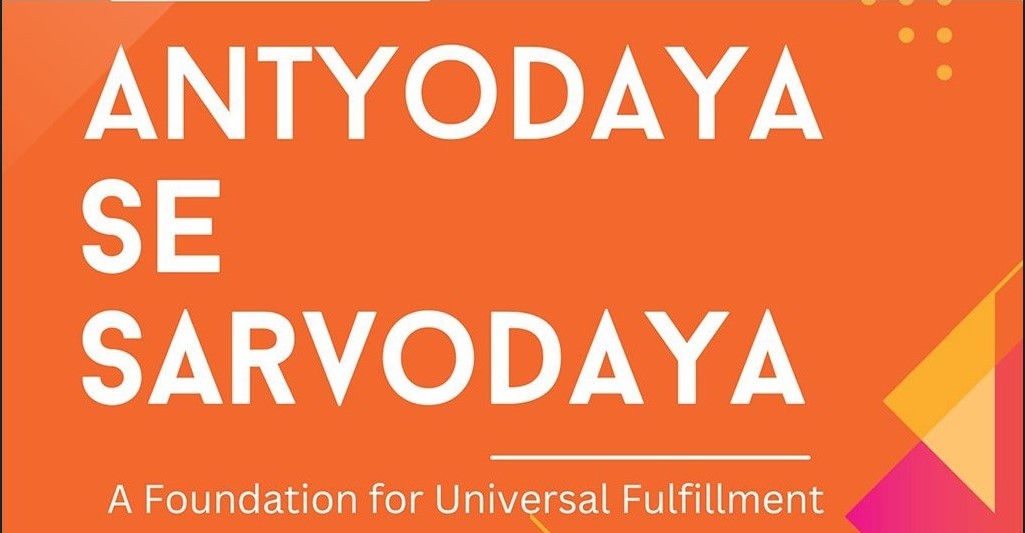
16-Jul-2025
Despite its remarkable economic ascent, India's trajectory towards sustainable and inclusive prosperity is threatened by persistent economic inequalit...
Singh Vikas
Source: Books

16-Jul-2025
Health is a fundamental human right and a critical indicator of development. The 2030 Agenda for Sustainable Development emphasizes the importance of ...
Nakil Ravinandan Ganpat
Source: Books

16-Jul-2025
Like most other countries around the world, after the emergence of the COVID-19 pandemic, Bangladesh's education system has undergone a radical change...
Noor Shamim, Shaoun Saharin Priya
Source: Books

16-Jul-2025
This paper explores the evolution of Indian welfare philosophy from Gandhi's nonviolent resistance to contemporary governance. It traces how the sacri...
Dwivedi Manan
Source: Books

16-Jul-2025
The COVID-19 pandemic, which emerged in late 2019, has profoundly impacted global health systems, economies, and societies. ...
Singh Varaich Vikram Jeet
Source: Books

16-Jul-2025
The “Internet plus” government service reform in China has progressed through three stages, namely one-stop service, one-window service, and compa...
Ye Lan
Source: Books

16-Jul-2025
Healthcare in rural India presents unique challenges and opportunities. While global health metrics emphasize indicators like life expectancy, mortali...
Damaraju Sriram Chandra
Source: Books

16-Jul-2025
Organ transplantation emerged as a critical intervention for patients suffering from end-stage organ failure, offering them a renewed chance at life.�...
Somasekharan Manoj
Source: Books
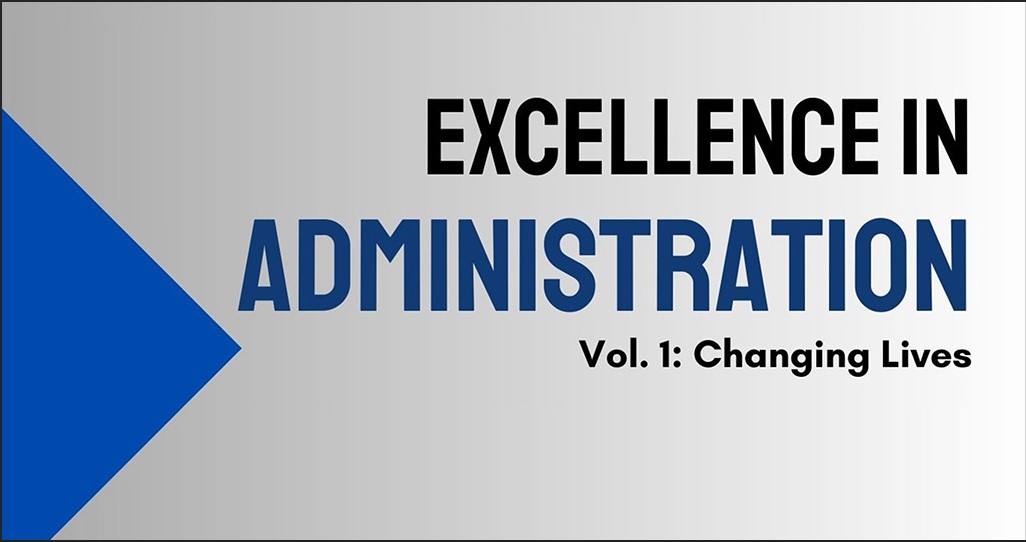
24-Jun-2025
In the vast and diverse landscape of India, regional disparities in development have long posed significant challenges to achieving equitable growth a...
AB Divya
Source: Books

24-Jun-2025
This paper examines various initiatives taken by Government of India to promote collaborative governance in various sectors. With increasing needs and...
Tripathi Surendra Nath, Misra Suresh
Source: Books

23-Jun-2025
Public administration, as the executive arm of the state, has tremendous responsibilities to match the needs and aspirations of the citizens of the st...
Chowdhry Sachin
Source: Books

23-Jun-2025
India's emergence as a global services powerhouse in the 21st century marks a profound and transformative shift. This evolution, far from a mere econo...
Vegunta Mamata
Source: Books

23-Jun-2025
In India, National Training Policy was formed in 2012, replacing the old policy of 1996. This was needed two reasons, new areas of administration give...
Sharma Vinod K Sharma
Source: Books

19-Jun-2025
In modern societies, with the increasing role of the state in social and economic fields, emphasis on the quality of its governance is of prime concer...
Pathania Mamta
Source: Books

19-Jun-2025
Digital Innovations in Social Protection: Trends, Challenges, and Solutions: The integration of digital technologies into social protection systems re...
Mohapatra Gadadhara
Source: Books

19-Jun-2025
An Analysis of India's Social Welfare Programs: In a democracy, the state's role is to promote societal welfare. According to Aristotle, the state sho...
Singh Amit K
Source: Books

19-Jun-2025
Income and Employment Intensive Growth Agenda for India: The paper examines income and employment status in the Indian labour force to identify policy...
Pandey KK, Lata Kusum
Source: Books

19-Jun-2025
"Accelerating India's Development" holistically looks at India’s growth trajectory since gaining independence – it rounds up all where it has done...
Sharma Vinod Kumar, Malhotra Charru
Source: Books

19-Jun-2025
With the deepening of democracy, increased decentralisation, increasing social and political awareness, digital penetration, shifts in demography, dem...
Vishandass Ashok
Source: Books

19-Jun-2025
As the Idiom of technological advancement takes its toll. The paper highlights a few poignant and emerging factors in the International Relations theo...
Dwivedi Manan
Source: Books

19-Jun-2025
Tribal Sustainable Development through Evidence-based Policy and Planning: A major issue in post-Independence India has been a misreading of demands o...
Tiwary Nupur
Source: Books

18-Jun-2025
The vision of Viksit Bharat can be realised through Viksit States, and that the aspiration of Viksit Bharat should reach the grassroot level i.e. to e...
Tripathi Surendra Nath
Source: Books

18-Jun-2025
With the Indian government’s vision to transform India into a developed nation by 2047, marking hundred years of independence, it has become of high...
Singh Shyamli
Source: Books

18-Jun-2025
This paper discusses the concept of good governance and its relations with the electoral politics in Indian context. It highlights the various strateg...
Misra Suresh
Source: Books

18-Jun-2025
In the Amrit Kaal (golden period) of independent India, the ‘citizen first’ approach guides public governance by deepening the outreach of service...
Alok VN
Source: Books

18-Jun-2025
Robust statistical data forms the cornerstone of an informed governance system. This paper studies the statistical system and data dissemination in th...
Debnath Roma M
Source: Books

18-Jun-2025
This Chapter highlights the gradual transformation from Personnel Administration to Strategic Human Resource Management over the years in Government o...
Jain Neetu
Source: Books

18-Jun-2025
Neoliberal policies pursued by India since 1990s have created a space for private enterprises hitherto occupied by the state entities, unshackled the ...
Chowdhry Sachin
Source: Books

18-Jun-2025
India is the largest democracy in the world inhabited by about 1.36 billion people over an area of 3287 thousand square kilometers according to an est...
Alok VN
Source: Books

18-Jun-2025
Social development is expected to promote holistic improvement of individuals, institutions and their surrounding environments. Looking at the pace of...
Bihari Saket
Source: Books

18-Jun-2025
Several challenges linger in the Indian education system, like rote learning, the non-existence of practical skills among students, and disparities in...
Mittal Shweta
Source: Books

18-Jun-2025
India’s Vision for 2047 aims to transform the nation into a developed country, with healthcare being pivotal for this progress. Achieving universal ...
Taneja Pawan Kumar
Source: Books

18-Jun-2025
One of the most crucial aspects of our society is law enforcement, which deals with issues of law and order nationwide. It is an essential component o...
Pandey Surabhi
Source: Books

18-Jun-2025
Access to justice is a fundamental tenet of the rule of law. It is paramount to enable people to exercise their rights, confront prejudice, make their...
Chadah Sapna
Source: Books
